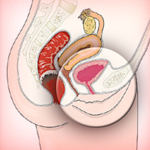Ohio Judge Allows Negligence Claim in Pelvic Mesh Lawsuit
 On March 28, 2013, a federal judge in Ohio issued his latest rulings regarding a pelvic mesh lawsuit filed against Boston Scientific Corp. The case was filed by a transvaginal mesh lawyer on behalf of a plaintiff and her husband. Boston Scientific had moved to dismiss certain allegations in the complaint that alleges significant transvaginal mesh complications. However, many of these claims were upheld by Judge James G. Carr, allowing them to remain fair game during trial.
On March 28, 2013, a federal judge in Ohio issued his latest rulings regarding a pelvic mesh lawsuit filed against Boston Scientific Corp. The case was filed by a transvaginal mesh lawyer on behalf of a plaintiff and her husband. Boston Scientific had moved to dismiss certain allegations in the complaint that alleges significant transvaginal mesh complications. However, many of these claims were upheld by Judge James G. Carr, allowing them to remain fair game during trial.
Significant transvaginal mesh complications alleged
In this pelvic mesh lawsuit, the plaintiff claims severe complications stemming from an alleged defect in a mesh device manufactured by Boston Scientific. The plaintiff had the Vesica kit vaginal sling implanted on January 29, 1998 to treat stress urinary incontinence. In 2008, she experienced a recurrence of symptoms and informed her physician, who recommended no further treatment at that time.
However, in June 2011, the claimant experienced vaginal bleeding and increased incontinence, and later developed lower abdominal pain. Her doctors determined that the mesh devices were extruding, and she underwent revision surgery.
Judge rejects certain counts in pelvic mesh lawsuit
Judge Carr ruled that the claims of negligence, defective manufacture and design, marketing defect, failure to warn, and strict product liability are allowable in this lawsuit. The defendants had attempted to dismiss all claims on the basis that they are time-barred under the two-year statute of limitations in Ohio regarding personal injury cases. The defendants also stated that the plaintiff did not meet heightened pleading standards. These assertions by Boston Scientific were based on the assumption that the plaintiff should have allegedly known of the transvaginal mesh complications in 2008 due to a recurrence of symptoms. However, the woman’s transvaginal mesh lawyer successfully argued that she could not have known that the mesh product was the cause of the complications until a physician consultation in February 2012.
Judge Carr agreed with the plaintiff’s lawyer, noting that at the time that the claimant experienced symptoms in 2008, her physician did not even recommend a course of treatment, which suggests that the symptoms were not linked to the mesh product at that time. Judge Carr further stated that the most severe symptoms did not surface until July of 2011.
However, Judge Carr did move to strike down certain claims by the plaintiff. He dismissed claims of breach of warranty, fraud, and violation of the Ohio Consumer Sales Practices Act. This ruling was predicated upon a failure of the plaintiff to demonstrate reliance on the alleged misrepresentations of the company.
Physicians show concerns about erosive qualities of mesh
One of the claims that Judge Carr allowed to proceed was the charge of negligence, which regarded the allegation that the defendant “manufactured and distributed a device with erosive qualities that… caused the device to fail.” The failure of the device is alleged to have caused the plaintiff’s complications.
Following the marketing of the device in early 1997, Boston Scientific had created an “Incontinence Team” to monitor relevant issues. The team expressed concerns about the product as early as November 1997. These concerns were prompted by an influx of complaints and adverse reports, such as the failure of the device to support “tissue in-growth.”
Prior to the plaintiff’s surgery in 1998, the defendants had already begun laying the foundation for a new, safer surgical mesh. According to the pelvic mesh lawsuit, this further supports the plaintiff’s claims that the devices were unsafe and potentially defective.

 Resources
Resources
 Resources
Resources
